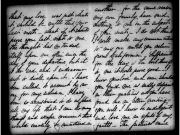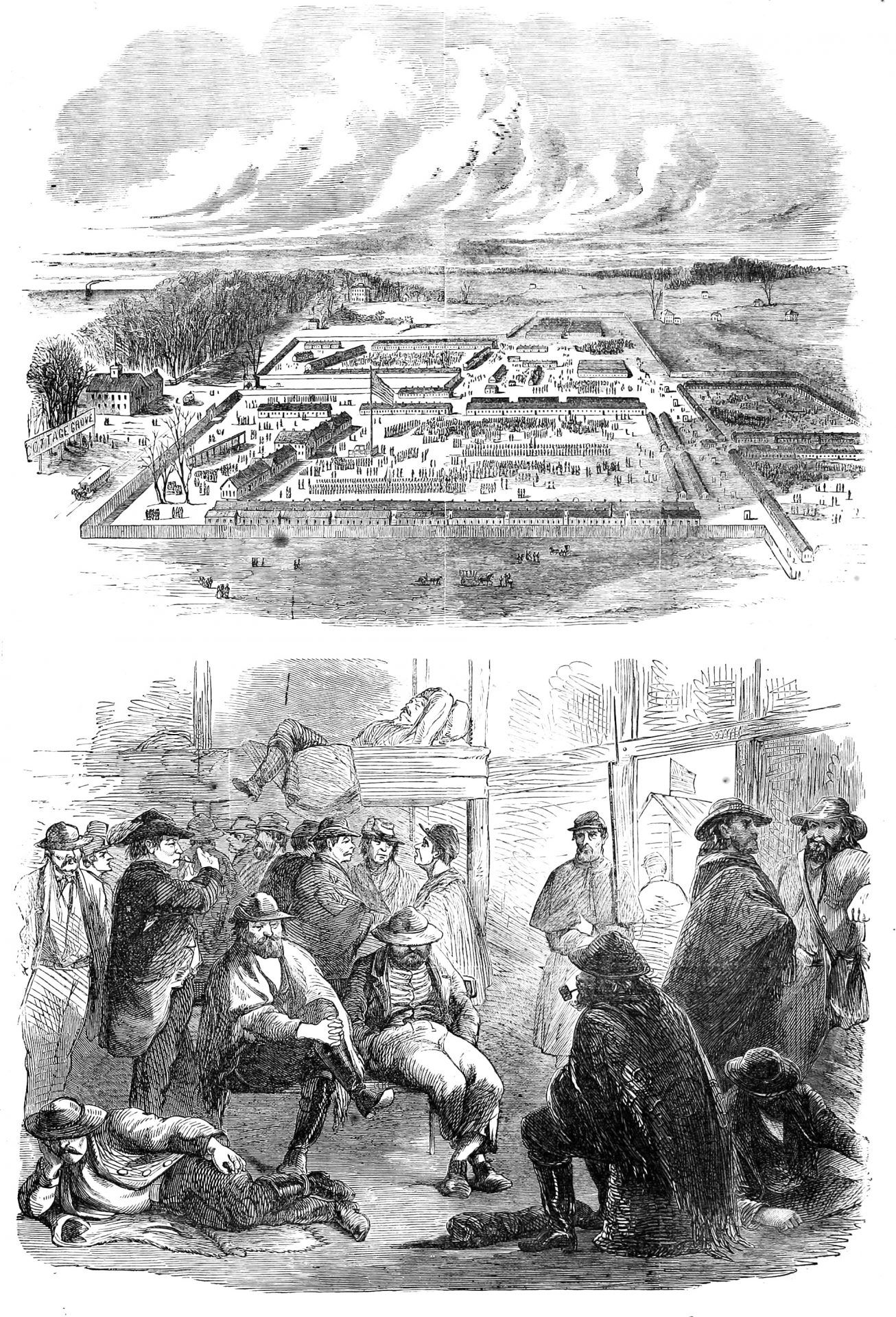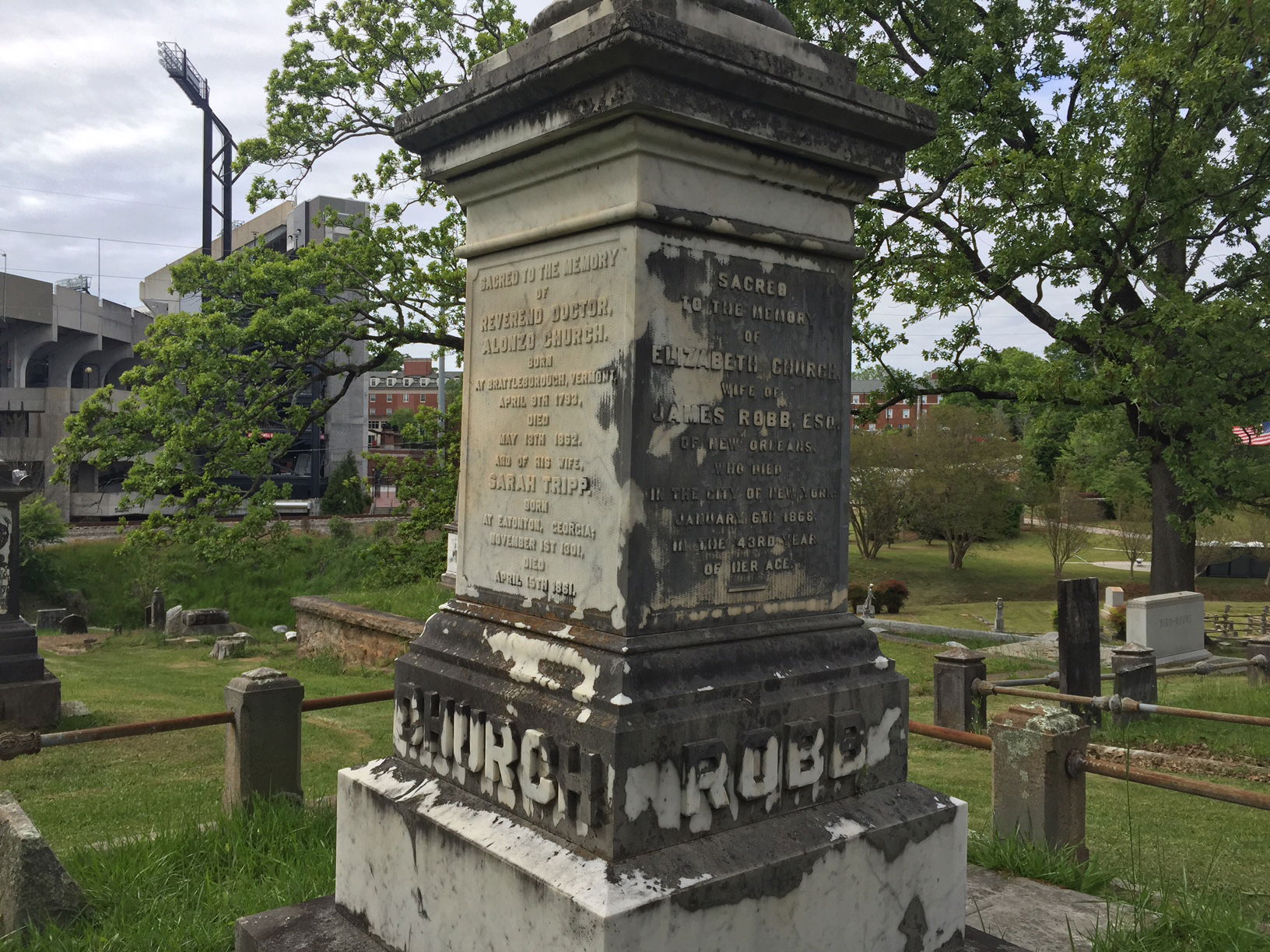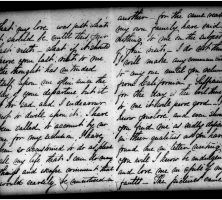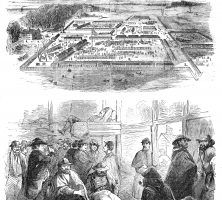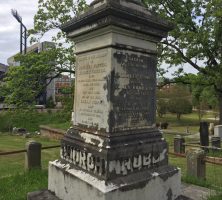Elizabeth Church Robb was a Confederate sympathizer best known for her work to relieve the suffering of Confederate soldiers in Union prisons. In the years following her death, Robb became a Lost Cause célèbre thanks to the United Daughters of the Confederacy’s (UDC) strategic reprintings of her obituary.
Elizabeth Whipple Hunt Church was born in Athens on September 27, 1823, to future University of Georgia president Alonzo Church and his wife, Sarah Trippe. As the daughter of a revered college president, she was raised amid wealth and allowed to indulge her every whim, a privilege she apparently enjoyed. “I have been so accustomed to do as [I] please,” she once admitted, “that I can do many things and escape comment that would scarcely be unnoticed in another.”
Elizabeth Church married Col. Lewis Stevenson Craig in June 1843 and gave birth fifteen months later to her only child, Sarah Church “Sallie” Craig, in Fort Jesup, Louisiana. Craig and her daughter later returned to Athens to stay with family while Colonel Craig fought in the Mexican War (1846-48). After the war, a wounded Lieutenant Colonel Craig continued to serve on civil expeditions in the West, before he was murdered by army deserters in 1852.
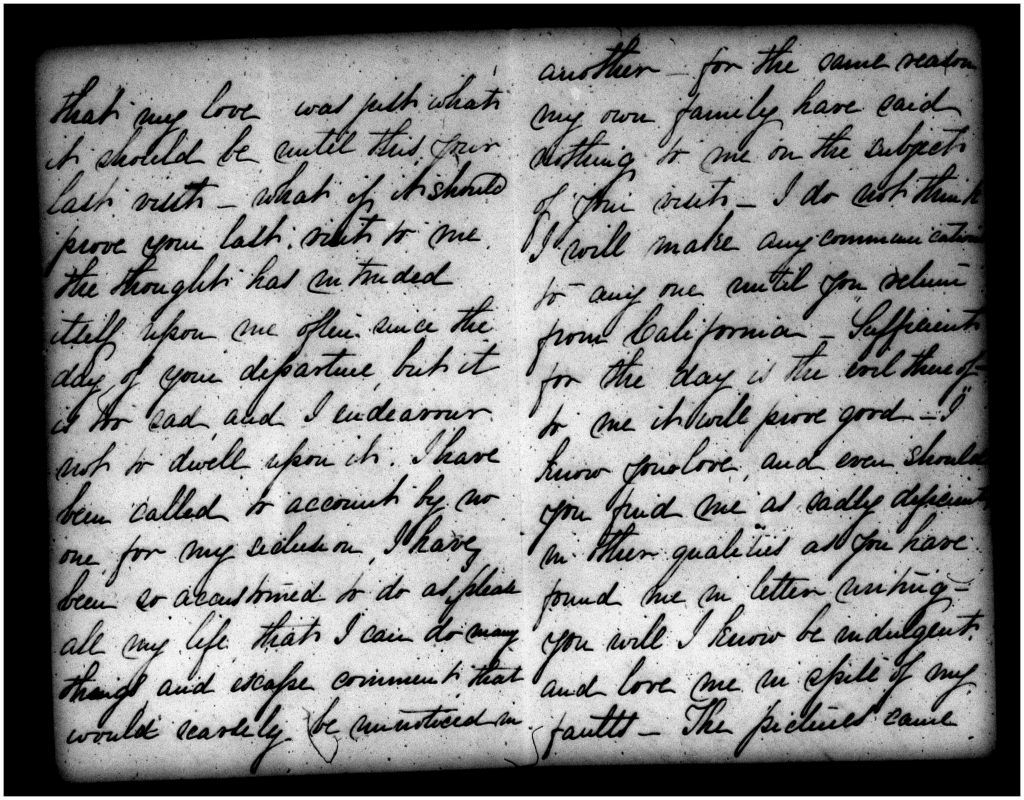
As a widow with powerful connections, Craig participated extensively in antebellum Washington society and even spent the winter of 1858 in the White House with James Buchanan and Harriet Lane. She enjoyed attending political dinners, visiting relatives, and sightseeing with her close friend, Mary Ann Cobb, wife of Treasury Secretary Howell Cobb.
Though associated with politicians Alexander Stephens, Robert Magraw, and Augustus Schell while in Washington, Craig ultimately married banking tycoon and art collector James Robb in 1860. In an effort to find neutral ground amid increasing sectionalism, the couple then relocated to Chicago, where he embarked on a new career in the railroad industry.
After the outbreak of the Civil War (1861-65), Elizabeth Robb volunteered her time and money administering aid to Confederate prisoners, primarily at Camp Douglas in Chicago. Unbeknownst to many, Robb was fighting her own mortal battle with ovarian cancer. Grappling with the physical and psychological effects of her disease, Robb channeled her energy into raising money and gathering supplies for local sanitary commissions. Her efforts, while occasionally scandalous because of her husband’s Union ties, were nevertheless appreciated by Confederate sympathizers, North and South.
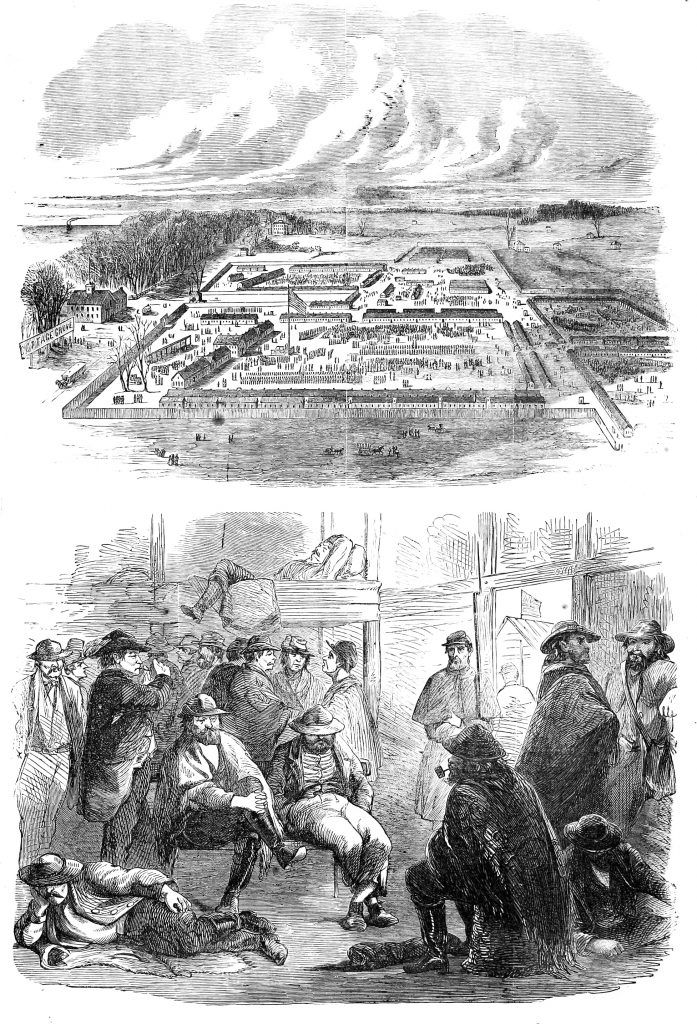
In April 1867 a celebration was held in Robb’s honor in Athens by former prisoners of war. Soon after, she passed away in New York on January 6, 1868, at age forty-four, without the company of her husband and family. Her remains were brought back to Athens and interred in Oconee Hill Cemetery on April 12, 1868.
Robb’s obituary, altered and reissued over the next one hundred years, reveals a great deal about the process of Lost Cause myth-making in the South. Her first obituary, written by Howell Cobb, did not indicate a cause of death. However, when the Southern Watchman reprinted the obituary on February 12, 1868, it attributed Robb’s death to a disease “contracted first in 1862, in nursing Confederate prisoners at Camp Douglas.” Emphasizing her purity of character and expressing nostalgia for a childhood spent in the antebellum South, Robb’s Reconstruction-era obituary echoed the language of Ladies Memorial Associations, which formed after the war to preserve Southern memory and Southern conceptions of honor.
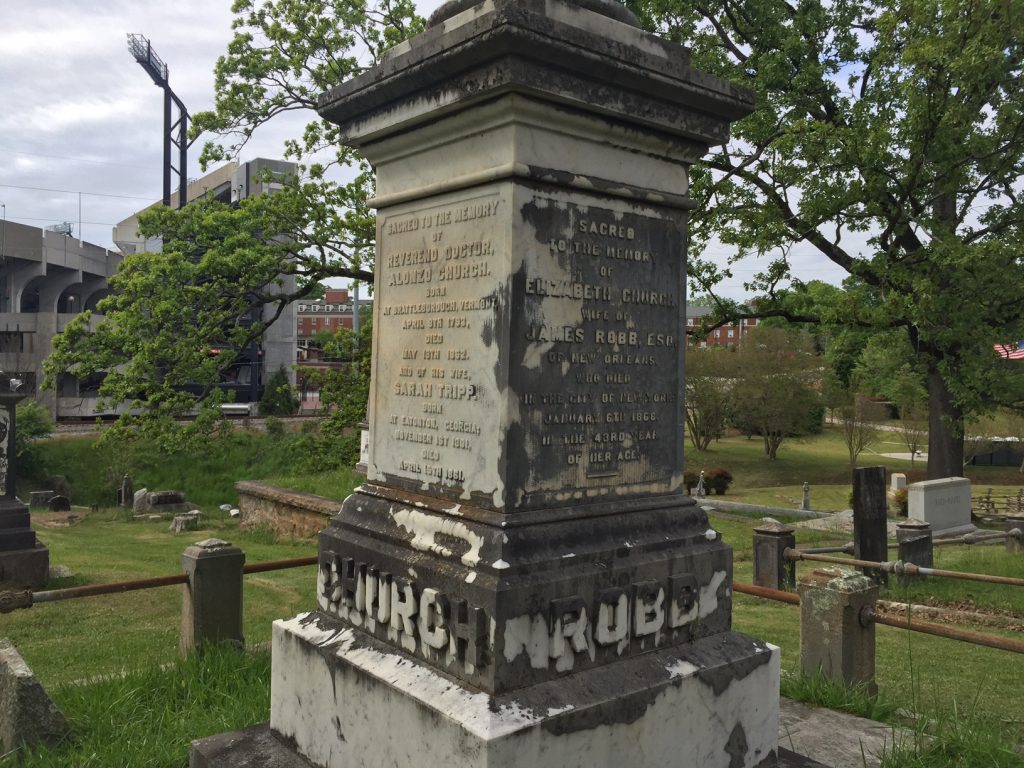
In August 1881, after James Robb’s obituary failed to mention his second wife, a third commemoration of Robb appeared in the Atlanta Constitution, though it made no mention of her cause of death. Athens-native Mary Linton added a new detail in her 1898 UDC essay, suggesting that Robb had slipped on ice outside of a Union prison and sustained fatal injuries, effectively making Robb a martyr. Linton’s essay was reprinted in 1912 and later provided the basis for UDC historian Caroline Patterson’s 1932 national commemoration of Elizabeth Robb as the outstanding Confederate heroine of Georgia. These UDC-sponsored memorials were issued alongside popular Confederate Veteran stories, all glorifying the Southern cause. In this way, Robb’s revised obituaries not only granted her a hero’s death but also perpetuated the larger myth of a just and noble war.
Inextricably linked to each of these printings were the surrounding, racially-charged political climates. The reappearances of Robb’s obituary coincided with the establishment of Jim Crow segregation and the disenfranchisement of Black voters. The last known obituary was a direct reprint of the 1868 Southern Watchman in 1964, appearing at the height of the civil rights movement and the Civil War centennial.


